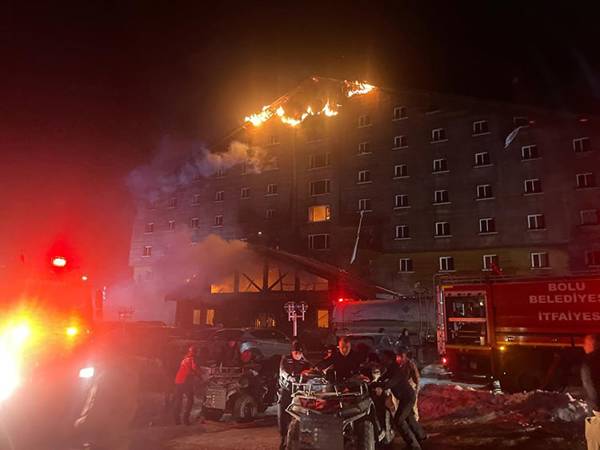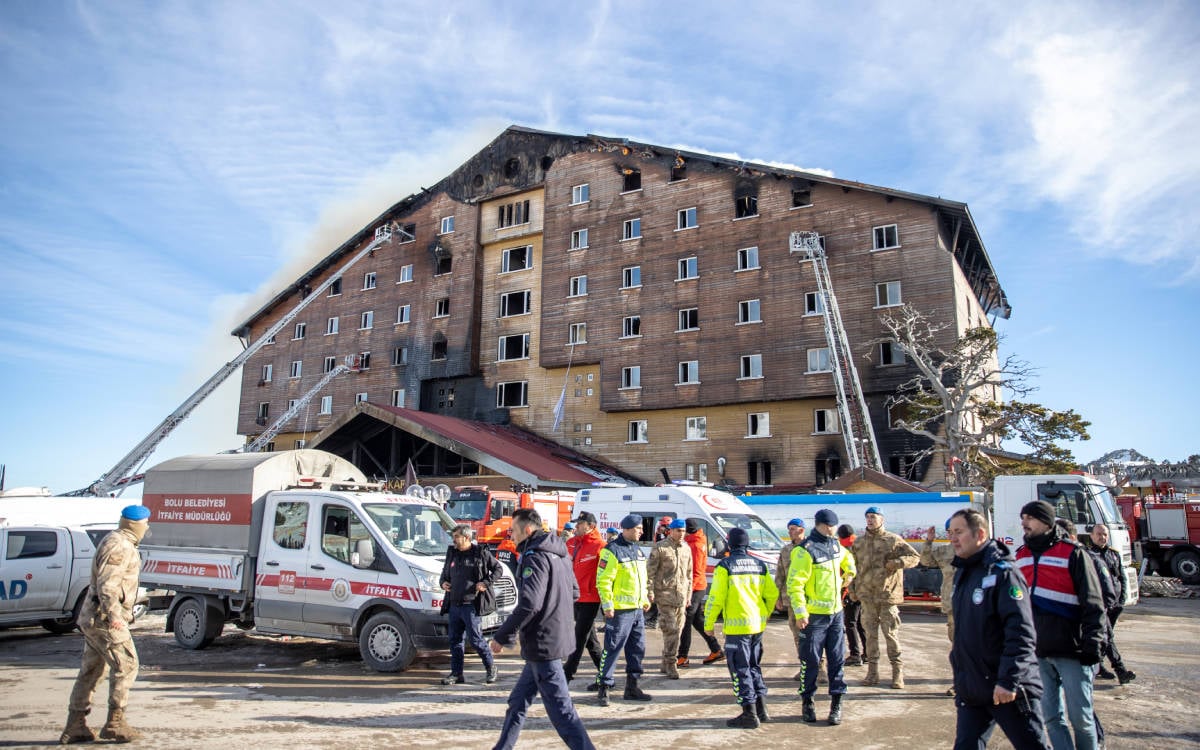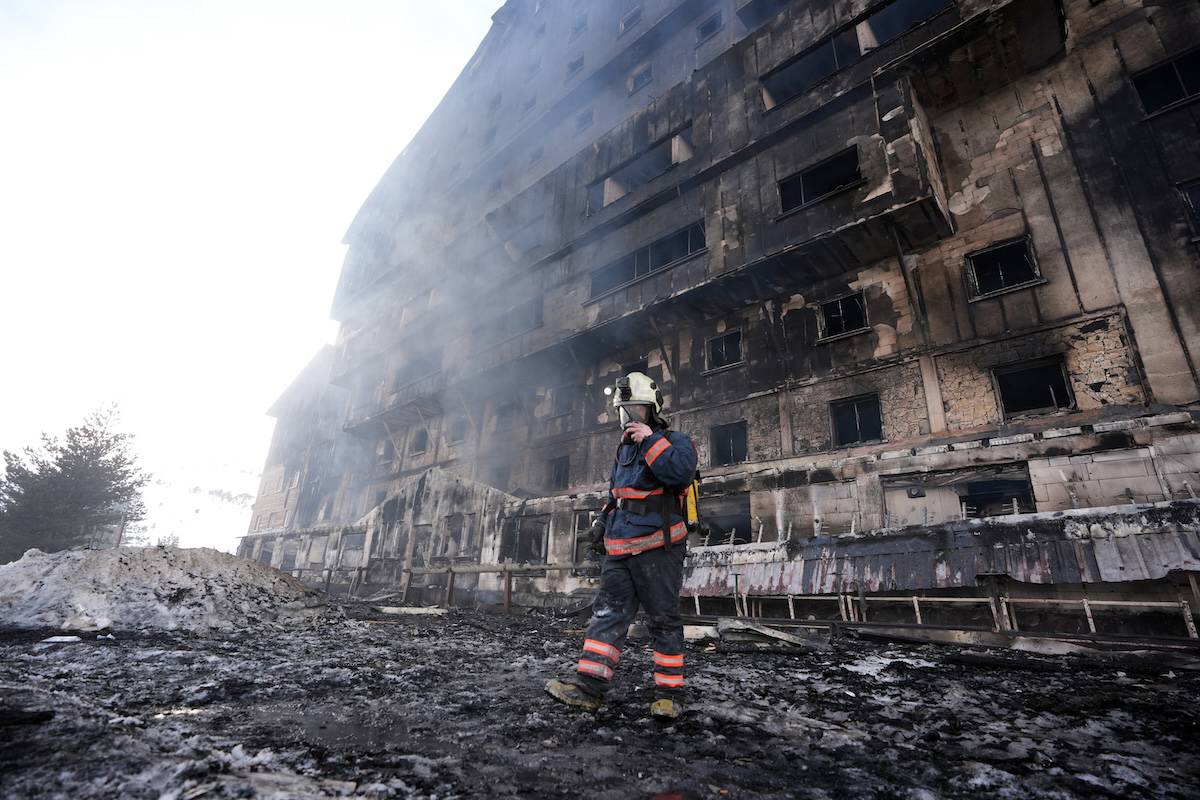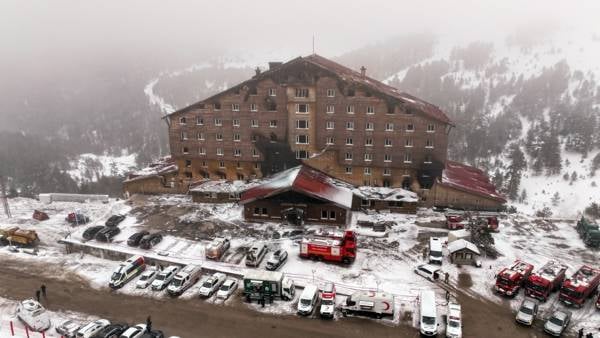Parliament to investigate deadly Bolu ski resort fire as report finds major safety flaws

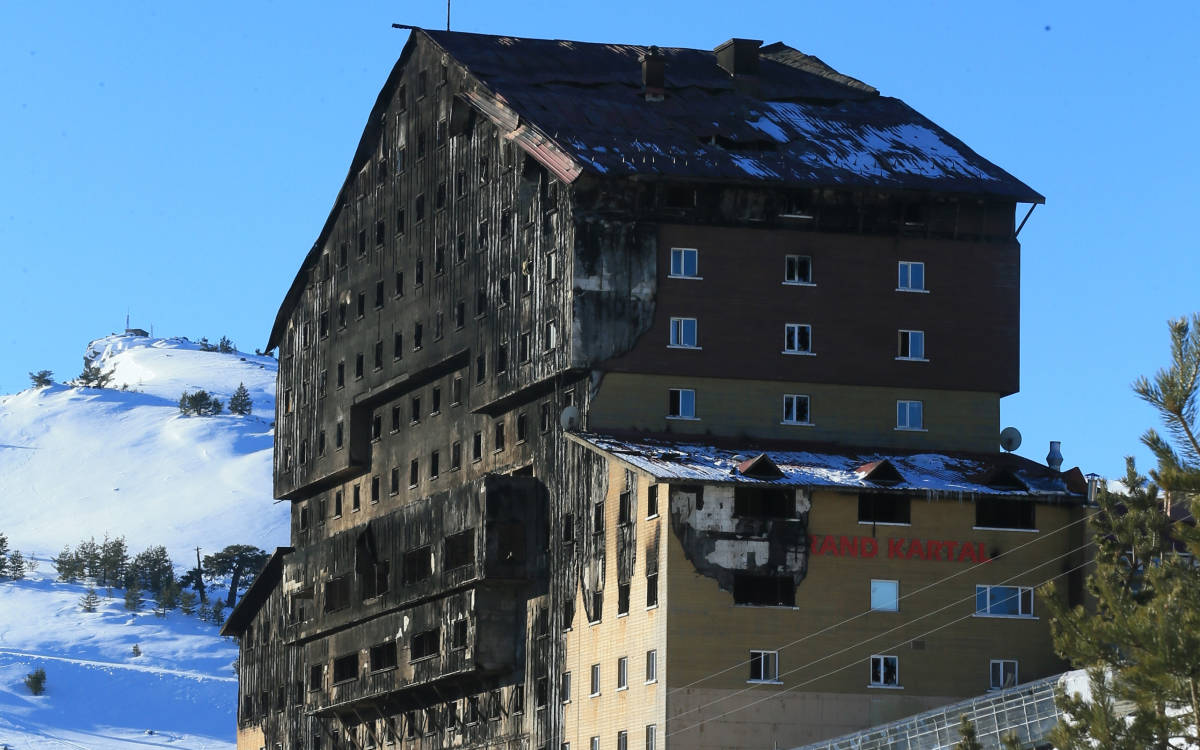
The parliament has established a commission to investigate the fire at a hotel in the Kartalkaya ski resort in Bolu, northwestern Turkey, which claimed 78 lives on Jan 21. According to information published today in the Official Gazette, the 22-member commission will conduct its inquiry over the next three months.
The fire began in the restaurant on the fourth floor of the 12-story hotel at around 3.30 am and quickly spread throughout the building. Investigations revealed that the hotel lacked a sprinkler system, a proper fire escape, and an operational fire alarm. With 238 guests in the hotel at the time, many were left stranded. Some were forced to jump from windows, while others tried to escape by tying bed sheets together to climb down.
Following the incident, the Culture and Tourism Ministry and the opposition-controlled Bolu Municipality blamed each other for the inadequate safety measures. The hotel’s owner, one of 19 people arrested in connection with the incident, said the hotel had been inspected and approved by the ministry.
Reports later revealed that the Bolu Municipality had conducted its own inspection in Dec 2024 at the hotel's request and found significant fire safety deficiencies. However, due to Kartalkaya's designation as a special tourism zone, the municipality has no enforcement authority over businesses in the area.
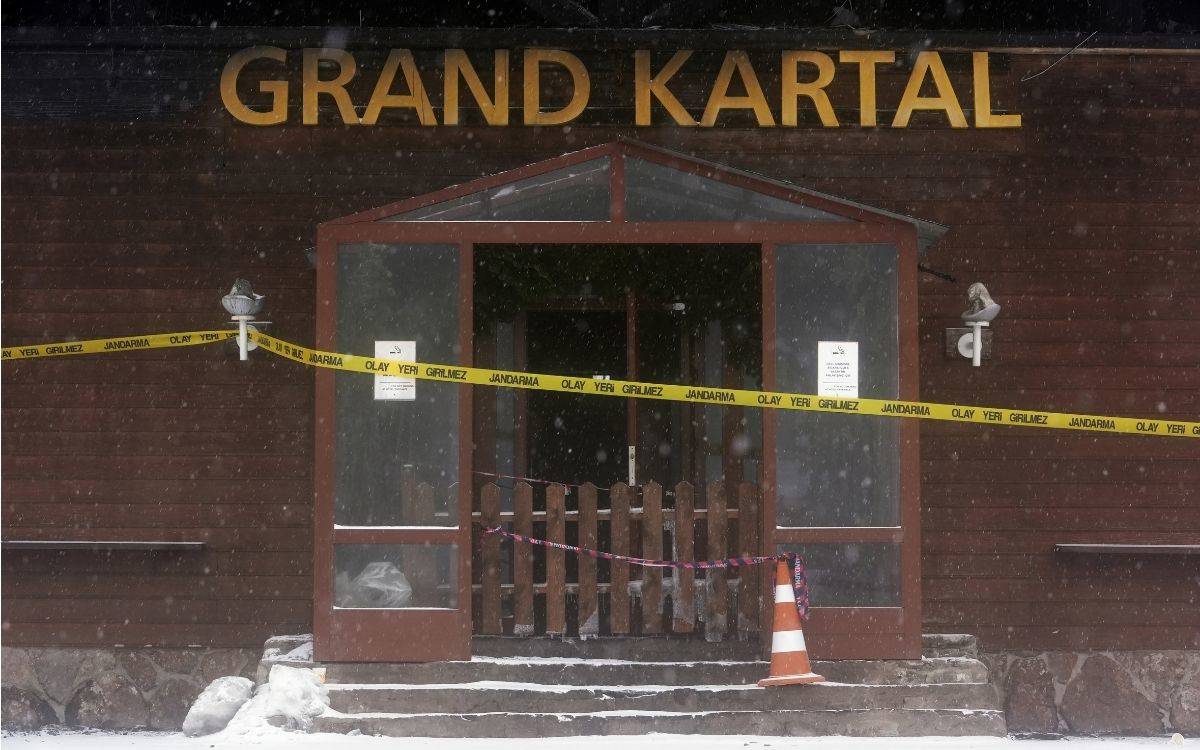
Owner of Bolu hotel says safety approved by ministry inspections before deadly fire
Engineers' report finds major safety flaws
The Ankara branch of the Chamber of Civil Engineers (İMO) released a report outlining structural and safety failures at the Grand Kartal Hotel. According to the report, the hotel did not undergo adequate fire safety inspections and was missing several critical features, including proper fire alarms, sprinkler systems, and sufficient water connections for fire hoses.
The İMO classified the deficiencies into three categories: "fire safety system deficiencies," "structural and systemic flaws," and "inspection failures." Fire safety system deficiencies included:
- A non-compliant and malfunctioning fire detection system
- Inoperative smoke detectors
- Non-functioning emergency buttons
- Inadequate emergency lighting, with drained battery systems
- Insufficient emergency exit signs
- Inadequate water supply connections for fire hose cabinets
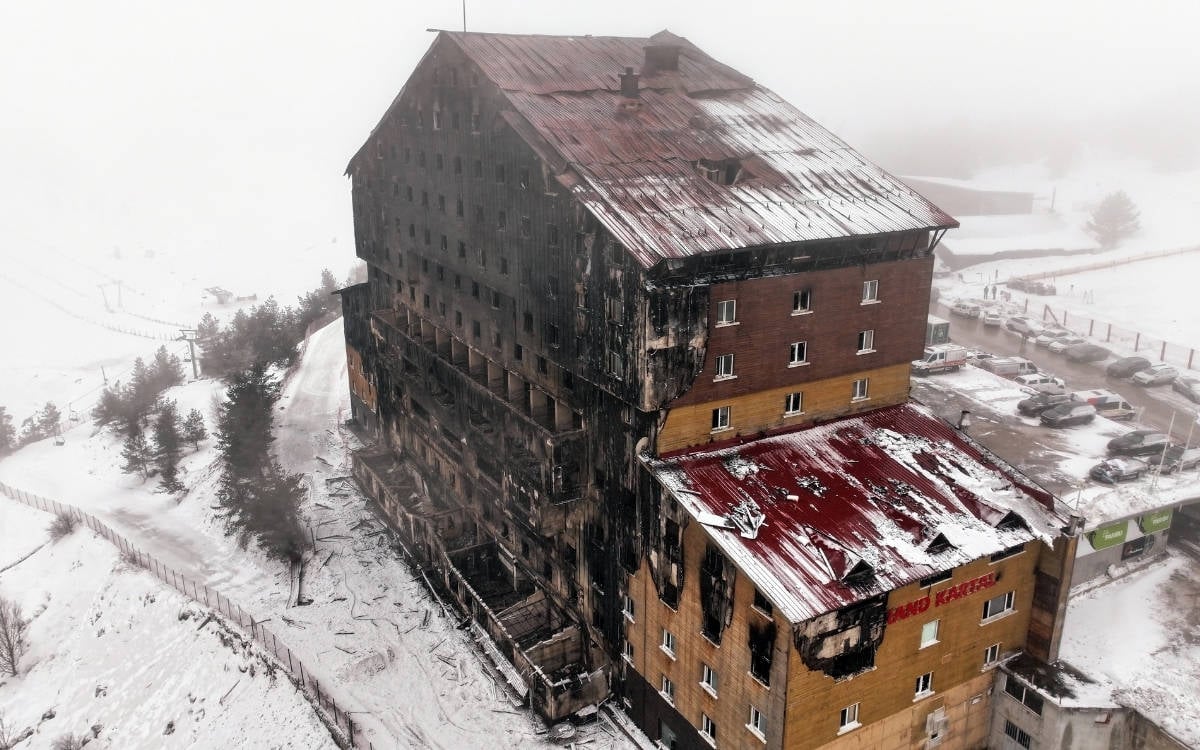
Bolu hotel fire: delayed response, lack of oversight, flawed legal framework
The report noted that the hotel was largely constructed with flammable wooden materials, including interior decorative panels in shared areas. These materials increased the fire risk. The building had five elevators and three staircases, only one of which was designated as a fire escape. However, that staircase was obstructed by unauthorized installations, including electrical panels and a base station, which melted during the fire and rendered the staircase unusable.
The hotel also lacked a sprinkler system, which the İMO noted was "mandatory under existing regulations." Furthermore, the water pumps required to support the fire hose cabinets were missing.
Rapid spread due to delayed response
The fire began in the hotel’s restaurant and spread rapidly to upper floors due to a delayed response and poor fire containment measures. Stairwells acted as chimneys, funneling smoke and flames upwards. The report also highlighted that the carpeting and wooden wall finishes used in common areas were not fire-resistant, which hampered firefighting efforts.
Additionally, the fire doors did not meet regulatory standards. The doors lacked panic bars, self-closing mechanisms, and pressurization to keep smoke out. Instead, they were made of wood and equipped with standard handles.
"A series of preventable failures"
The İMO concluded that a series of preventable mistakes contributed to the tragedy. "If even one of the necessary measures—such as periodic inspections, staff training, structural upgrades, or regulatory compliance—had been fully implemented, this catastrophic outcome might have been avoided," the report stated.
The report also pointed out that focusing solely on the combustibility of materials such as tables, chairs, and wall panels distracts from addressing the root causes. "Fire-resistant materials, including cables, carpets, and wood treatments, are readily available and could have been used," the report emphasized. (VK)




